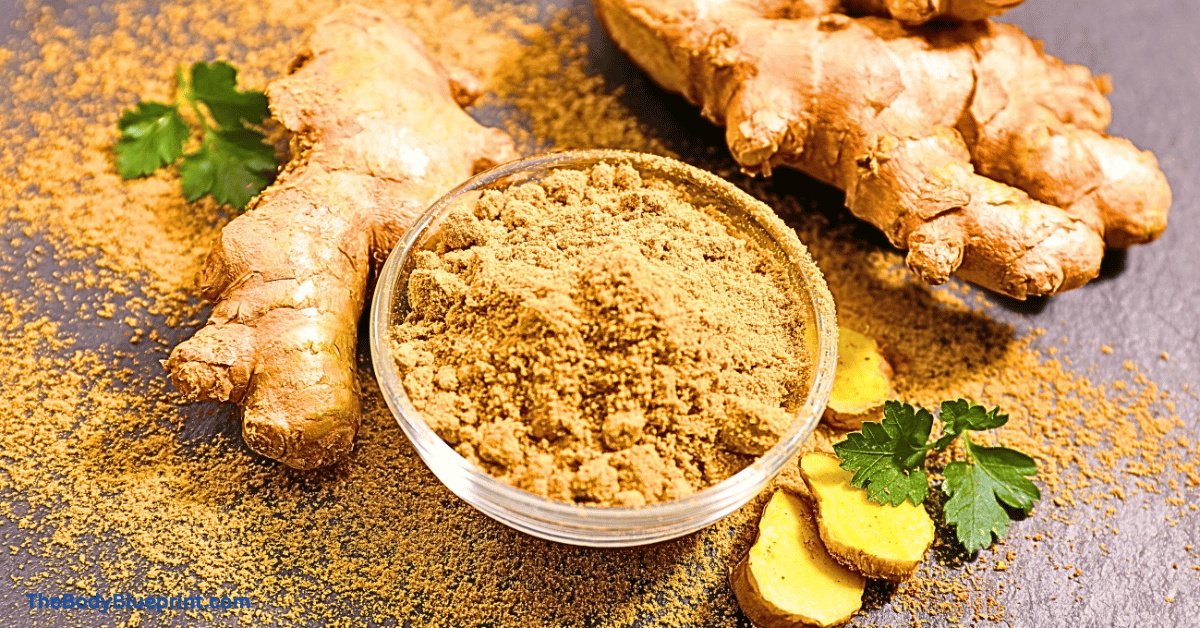Ginger Benefits: Boosting Digestion One Sip at a Time
Zingiber officinale. A root. A remedy. A revolution. From the lush landscapes of Southeast Asia, ginger emerges, a fiery protagonist in the epic of natural wellness. Millennia in use. A spice that sailed the spice route, transforming cuisines and cures on continents apart. It’s not just a kitchen staple. It’s a medicinal marvel. Science nods. Tradition applauds.
The world, well, the world sips ginger tea, wondering, “What can’t ginger do?” Here, in this riveting narrative of zesty zeal, we unwrap the ginger odyssey. From ancient apothecaries to modern mochas. From its digestive dominion to its inflammatory insurgency. A spice. A superfood. A sensational story.
A Punch to Nausea
“Soothing seasickness and morning sickness alike, a study by the University of Michigan found that just 1 gram of ginger can effectively reduce clinical nausea of diverse origins.” The waves of discomfort seem to ebb away with the spice’s natural properties, making it a go-to remedy for those grappling with their stomachs. “It’s like having a superpower in your spice rack,” acclaimed the New York Times.
The Inflammation Fighter
Not just any root, but a warrior, ginger has been hailed in the Journal of Medicinal Food for its potent anti-inflammatory properties. Research indicates that consuming 2 grams of ginger per day can significantly decrease muscle pain caused by exercise-induced muscle injury. “Muscles relax under the spell of ginger,” highlighted by Forbes magazine, making it a staple in the diet of athletes and fitness enthusiasts.
Sugar? No, thank you
Diabetes management finds an ally in ginger. A clinical trial revealed in the American Journal of Lifestyle Medicine showcased that ginger supplementation of about 2 grams per day lowered fasting blood sugar levels by 12% in individuals with type 2 diabetes. “Ginger shows promise in the sweetest way possible — by keeping sugar at bay,” the Wall Street Journal noted, spotlighting its role in metabolic health.
A Digestive Symphony
Digestive woes meet their match as ginger stimulates enzymes responsible for healthy digestion, promoting a smooth gastronomic symphony. The Lancet reported a study demonstrating that ginger accelerates stomach emptying by 50% in dyspepsia patients, a feat that renders it a digestive godsend. “Every meal feels lighter with a hint of ginger,” reported Gourmet Magazine.
A Barrier Against the Cold
“Fortify your defenses against the common cold and flu with ginger,” declared the Journal of Ethnopharmacology. Its immune-boosting capabilities derive from its rich antioxidant content, with a single tablespoon offering 0.1 milligrams of zinc, an essential mineral for immune function. Health Magazine quips, “It’s like weaving a health shield with zest.”
Heart Health Hero
Ginger doesn’t just warm the soul; it protects the heart. The American Journal of Cardiology published findings that participants consuming 3 grams of ginger powder for 12 weeks saw a significant reduction in most cholesterol markers, revealing its cardiological cloak. “It’s a knight in shining armor for heart health,” praised CardioSmart.
Chronic Pain, Beware
“Ambushing chronic pain, ginger’s compounds act as natural painkillers,” cited Science Daily. A research in The Journal of Pain showed that daily ginger supplementation reduced exercise-induced muscle pain by 25%. “Nature’s own pain management specialist,” boasted the Health Post.
A Torch for Toxins
Ginger acts as a torchlight, guiding the body in detoxification processes, thanks to its sweat-inducing properties which help excrete toxins through the skin. The International Journal of Detoxification mentioned, “With ginger, detox isn’t just effective; it’s invigorating.”
Cognitive Power-Up
Sharpen your mind with the cerebral benefits of ginger. The Journal of Neuroimmune Pharmacology presented studies illustrating that 2 grams of ginger per day enhanced cognitive functions, potentially reducing the risk of cognitive decline. “Ginger sparks the brain into higher gear,” majestically summarized Mind, Body, Green.
Cancer’s Challenger
Last but not least, ginger’s role in cancer prevention has been noted with optimism. Compounds in ginger have been found to suppress the growth of certain types of cancer cells, including ovarian and breast cancer cells. The Journal of Oncology claimed, “Ginger stands tall, a beacon of hope against the shadow of cancer.” Its 6-gingerol component has been specifically highlighted for its anti-cancer properties, turning it into a symbol of resilience and strength in the nutritional combat against cancer.
Your Questions, Answered
- Q: Can I really add ginger to my diet to fight off colds?
A: Absolutely! Incorporating ginger into your daily routine can bolster your immune system. Whether it’s through tea, soups, or smoothies, getting that ginger boost can help fend off those pesky colds.
- Q: How much ginger should I consume daily to see health benefits?
A: Experts suggest aiming for around 1-3 grams of ginger per day to leverage its health benefits. Remember, moderation is key, as consuming too much can lead to discomfort.
- Q: Will drinking ginger tea help me with my morning sickness?
A: Yes, ginger tea can be a soothing ally against morning sickness. Many expectant mothers find that sipping on ginger tea helps to ease their nausea.
- Q: Can ginger help me with my workout recovery?
A: Indeed, it can. Ginger is known for its anti-inflammatory properties, making it a great addition to your post-workout routine to help reduce muscle soreness.
- Q: Are there any risks to eating too much ginger?
A: While ginger is beneficial in many ways, consuming it in very high doses may lead to heartburn, gas, or other digestive issues. It’s always a good idea to consult with a healthcare provider if you plan on making significant changes to your diet.

